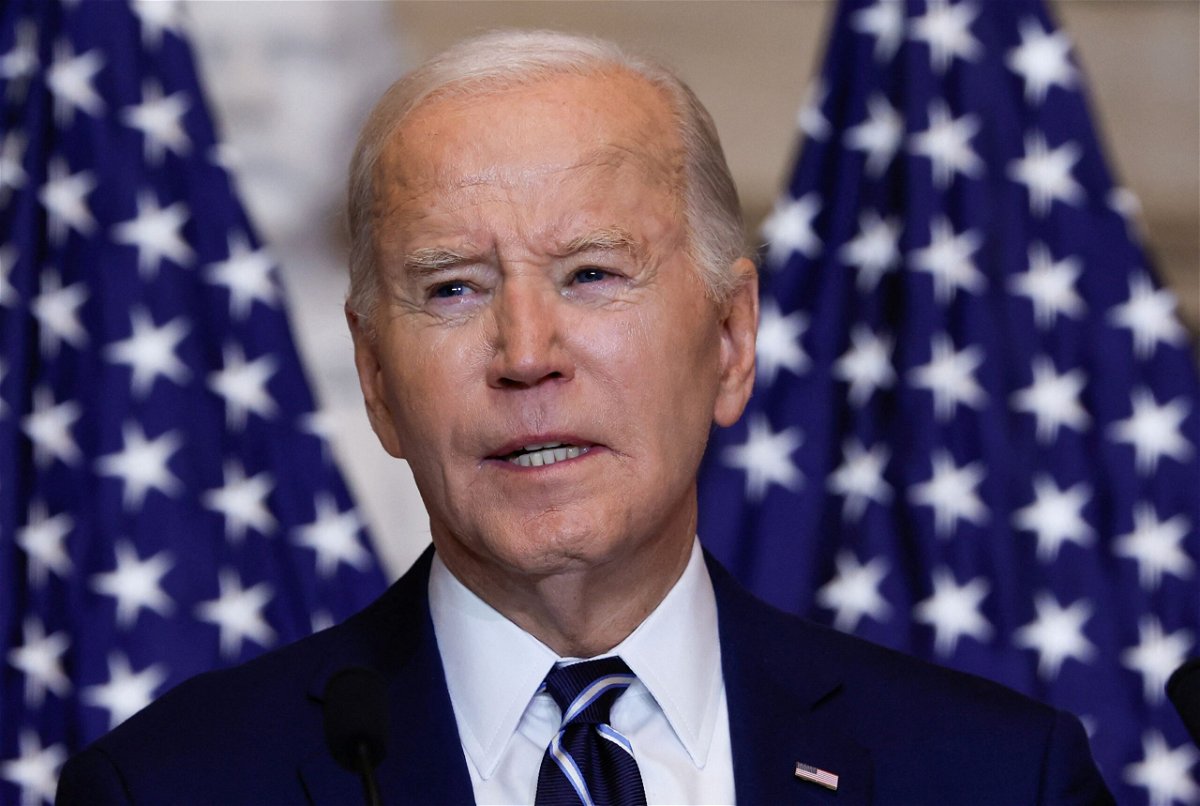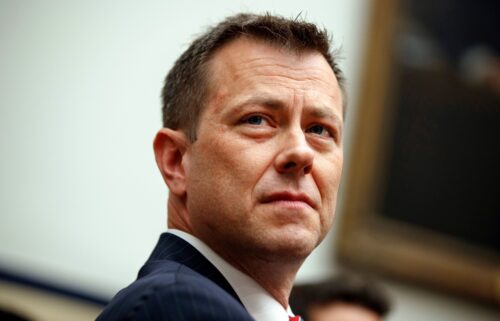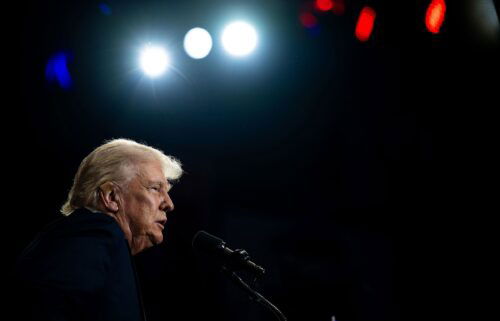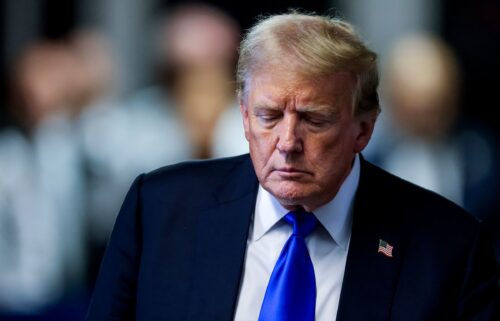Biden meets with families of 3 Americans killed in Jordan attack before honoring them during dignified transfer

U.S. President Joe Biden speaks during the annual National Prayer Breakfast at the U.S. Capitol in Washington
(CNN) — For an American president, it is the gravest of responsibilities: witnessing the country’s war dead return home for what the military calls a “dignified transfer.”
President Joe Biden attended his second as commander in chief on Friday, honoring the three American soldiers killed in a drone attack in Jordan last weekend as their remains arrive back on US soil.
“They risked it all,” Biden said a day ahead of making the trip to Dover Air Force Base in Delaware.
No, the occasion isn’t a “ceremony,” according to the military’s language. Nor are the flag-draped boxes that arrive to Dover “coffins” — they are “transfer cases” loaded onto trucks for processing at the base mortuary, the largest in the country.
The precise vocabulary, briefed to reporters who attend the transfers, is an extension of the mournful precision that unfolds nearly identically on the tarmac every time a US service member dies in service of the nation.
Dictated by ritual, dignity and utmost attention to the needs and wishes of grieving families, the transfers are a searing reminder for a president of the consequences of his decisions and the weight of the job. They have become rarer as the US winds down the foreign wars that defined the first decades of the century.
Biden witnessed the transfer Friday of Sgt. William Rivers, 46; and two Army specialists who were posthumously promoted to the rank of sergeant: Kennedy Sanders, 24, and Breonna Moffett, 23. All are from Georgia.
The US has yet to retaliate for the drone attack in Jordan that left the three Americans dead and more than 40 injured, though it has pinned blame on an umbrella group of Iran-backed militants in Iraq. A multiphase counterstrike is expected soon, officials have said.
On Friday, however, Biden’s attention was on the Americans lost and the families they left behind.
His schedule allowed for more than an hour midday to meet with the families of the fallen Americans, alongside first lady Jill Biden, Defense Secretary Lloyd Austin and Chairman of the Joint Chiefs of Staff Gen. C.Q. Brown. Biden met with each of the families at the Center for Families of the Fallen prior to attending the dignified transfer, according to the White House.
In past meetings, families have shared memories of their loved ones — or, as has sometimes been the case, exchanged tense words with the president — in private.
After, the president and those accompanying him move outside to the tarmac, where the military plane carrying the remains of their loved ones awaits. The families are brought onto the tarmac and positioned a few hundred feet from the plane. A bus shields them from view of the media.
One by one, the cases are carried with practiced, solemn precision by teams of seven from the bay of the military cargo plane and onto waiting gray mortuary vans.
The transfers occur in near silence; the hum of the plane’s auxiliary power pierced only by occasional sobs from family members watching nearby and an officer’s calls to “present arms” when cases emerge.
Once the remains are transferred from the plane, they are driven to the base mortuary, prepared for burial and transferred onward.
Presidents don’t always attend the ritual, and media were allowed to document them only beginning in 2009.
“Having at least some of these transfers publicly documented, I felt, gave our country a clearer means to reckon with the costs of war, the pain of each loss,” former President Barack Obama wrote in his memoir.
Aides to presidents who have attended dignified transfers in the past describe their bosses as visibly affected by the experience on the flight home.
Obama went to two dignified transfers at Dover; Trump went to four, once bringing with him actor Jon Voigt in a last-minute invite. Biden has attended three, including when he was vice president and as a senator for Delaware. He once claimed he was being blocked from attending dignified transfers at Dover by the Pentagon, describing times when he wanted to pay his respects but wasn’t allowed.
He attended his first as president in 2021, when 13 US service members were killed in a terrorist attack outside the Kabul airport gates in Afghanistan.
When he was meeting privately with families of the Americans killed in Kabul, he was confronted with raw anger and emotions; some of the family members had wrestled beforehand with whether they wanted to meet the president at all.
This week, when Biden spoke by telephone to the families of the three Americans killed in Jordan, he gauged their feelings about his attendance at Dover on Friday for their loved ones’ dignified transfer. All were supportive of him being there.
In video taken by the family of Sanders of their call with Biden, the president said he was looking at a photo of the 24-year-old, who he said had a beautiful smile.
“Thank you, Mr. President,” her mother, Oneida Oliver-Sanders, told Biden. “She did light up every room she was in.”
This story has been updated with additional information.
The-CNN-Wire
™ & © 2024 Cable News Network, Inc., a Warner Bros. Discovery Company. All rights reserved.



